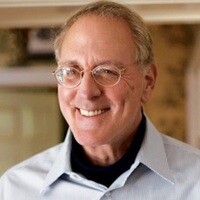

Winston
Winston Francis Groom, Jr.
d. September 17, 2020
March 23, 1943 (Washington, D.C.) September 17, 2020 (Fairhope, Alabama ) Winston Groom, the noted journalist, author and historian, died at home, on Thursday, September 17, 2020, following a brief illness. He is survived by his wife, Susan Oswalt Groom, and his daughter, Carolina Montgomery Groom. His career as a writer spanned more than fifty years, beginning as the editor of the University of Alabama humor magazine, The Mahout, and culminating in 8 works of fiction, 14 works of nonfiction, world-wide fame and accolades. Born in 1943, Winston grew up in Mobile, Alabama. He graduated from University Military School and the University of Alabama in 1965 with an AB in English. While at Alabama, he was a member of the Delta Tau Delta Fraternity, a tennis player, a ROTC cadet and a member of the Jasons Honorary Society. After his graduation, Winston received his commission as a second lieutenant in the United States Army. He served on a combat tour in Vietnam with the Fourth Infantry Division from 1966 to 1967. During his service, Winston rose to the rank of Captain. Following an honorable discharge, he spent the next eight years as a reporter and columnist for the Washington Star newspaper, covering the federal courts and writing opinion pieces. With the encouragement of Willie Morris, he resigned from the newspaper and moved to New York to pursue a career as an author, where he became friends with the literary lions of the day including Irwin Shaw, James Jones, Joseph Heller and William Styron. Winston’s first novel, Better Times Than These, was published in 1978 and was highly acclaimed. His second novel, As Summers Die, was published in 1980 and subsequently made into a movie. In 1982, Winston, along with Duncan Spenser, wrote Conversations with the Enemy, the nonfiction account of Robert Garwood, a prisoner of war who as the only American soldier during the entire Vietnam War tried for treason. This book was a finalist for the Pulitzer Prize for General Nonfiction in 1984. Winston returned home to Alabama and gave the world a gift -Forrest Gump, one of the great characters in the American canon. Forrest Gump was published in 1984. It was made into an Oscar winning movie in 1994. It sold millions of copies worldwide and was republished in dozens of languages. It is a rare thing, indeed, for an author to create such a character, but Winston did it, and in doing so, gained worldwide fame. After the phenomenal success of Forrest Gump, he turned his attention to history. His first such work, Shrouds of Glory, about the Civil War Battle of Franklin, Tennessee was published in 1995. In subsequent works, his gift for story-telling and attention to detail enriched our understanding of the Civil War battles of Shiloh and Vicksburg. Winston also wrote about the Battle of New Orleans (Patriotic Fire), and the exploration of the American West (Kearney’s March). Winston wrote extensively about the two World Wars. He described the horrors of trench warfare in World War I (Storm in Flanders) and the history of military aviation (The Aviators). In the beginnings of World War II (1942), Winston found a subject that would be the center of many of his later works of non-fiction. He wrote of the generals who designed the strategy for victory in World War II (The Generals) and the politicians who created the alliance (The Allies). Meanwhile, he found the time to write the definitive history of Alabama Crimson Tide football, a children’s book on Ronald Reagan, to act the part of a shopkeeper in the movie My Dog Skip and, some say, to bugle “Taps” at Willie Morris’ funeral. In 2018, Winston published his last novel, El Paso, which blended his skill with historical nonfiction and gift for creating an engaging narrative. El Paso is based on a story told to him by his friend, Eddie Morgan, which revolves around the kidnapping of an American child in Mexico at the turn of the 20th Century. In it we encounter the likes of Pancho Villa, General “Blackjack” Pershing and a young lieutenant named George Patton. His last book, which will be released, posthumously, later this fall, is entitled The Patriots: Alexander Hamilton, Thomas Jefferson, John Adams and the Making of America. In addition to his books, he wrote for numerous publications, including Smithsonian, Condo Naste Traveler, Architectural Digest, New York Times Magazine and the Washington Post. He was also a Contributing Editor for Garden and Gun. Winston received numerous awards, literary prizes, honorary Ph.D.’s, Doctorates of Humane Letters and other recognitions. Special among them was the University of Alabama, College of Communication Clarence Cason Award which he received in 2006. Winston was also a husband, a father and a friend to many. He was a raconteur who could hold court for hours telling tales and spinning yarns. He loved Alabama Crimson Tide football, barbeque, boats and bluegrass music. As his friend, Forrest, once said, he “didn‘t lead no humdrum life.” He will be missed. In lieu of flowers, the family requests that memorials be made to the University of Alabama Libraries Special Collection, Post Office Box 870266, Tuscaloosa, Alabama 35487, or the Gary Sinise Foundation, Post Office Box 368, Woodland Hills, California, 91365. A graveside service will be held Wednesday, September 23, at 11:00 am at Pine Crest Cemetery, 1939 Dauphin Island Parkway, Mobile, Alabama 36605.
To order memorial trees or send flowers to the family in memory of Winston Francis Groom, Jr., please visit our flower store.
Service Schedule
Past Services
Graveside Service
Wednesday, September 23, 2020
Starts at 11:00 am (Central time)
Pine Crest Cemetery
Guestbook
This site is protected by reCAPTCHA and the
Google Privacy Policy and Terms of Service apply.
Service map data © OpenStreetMap contributors


